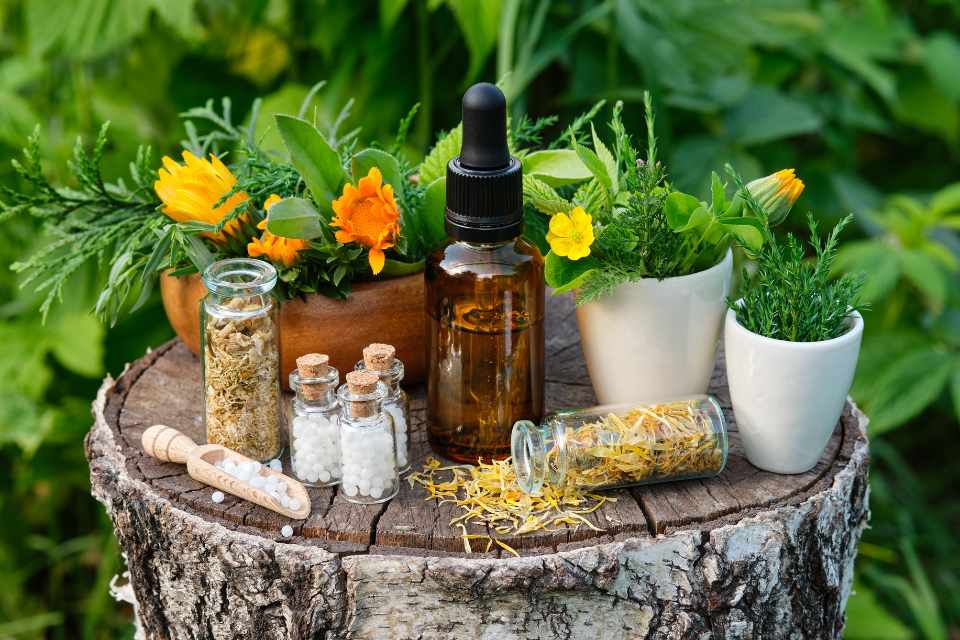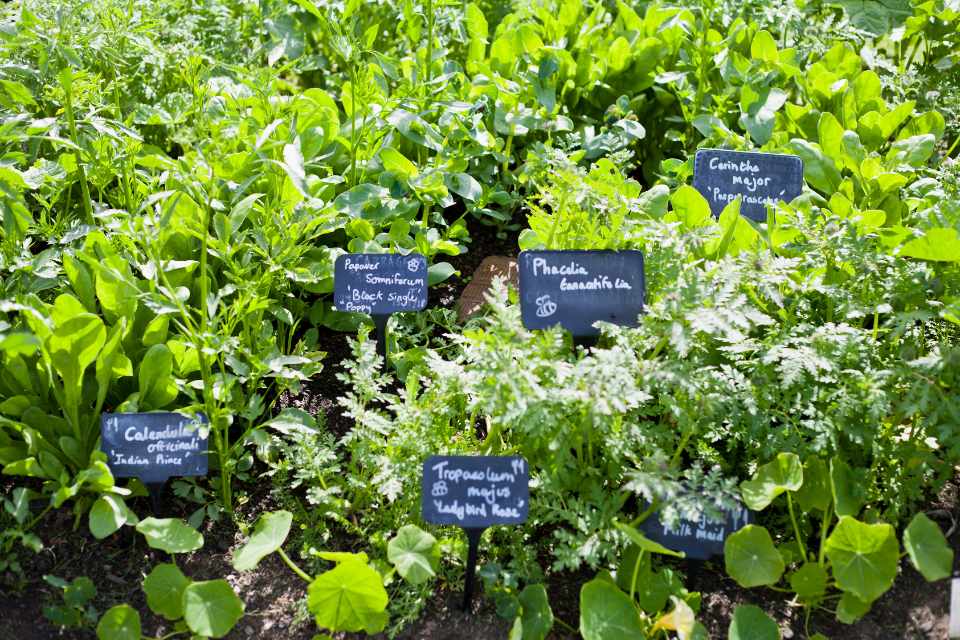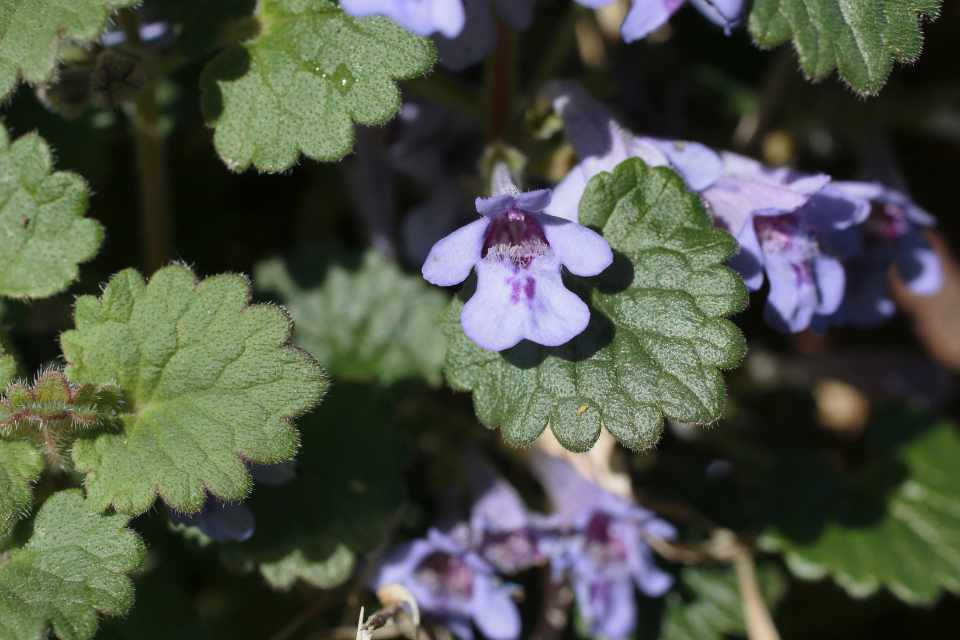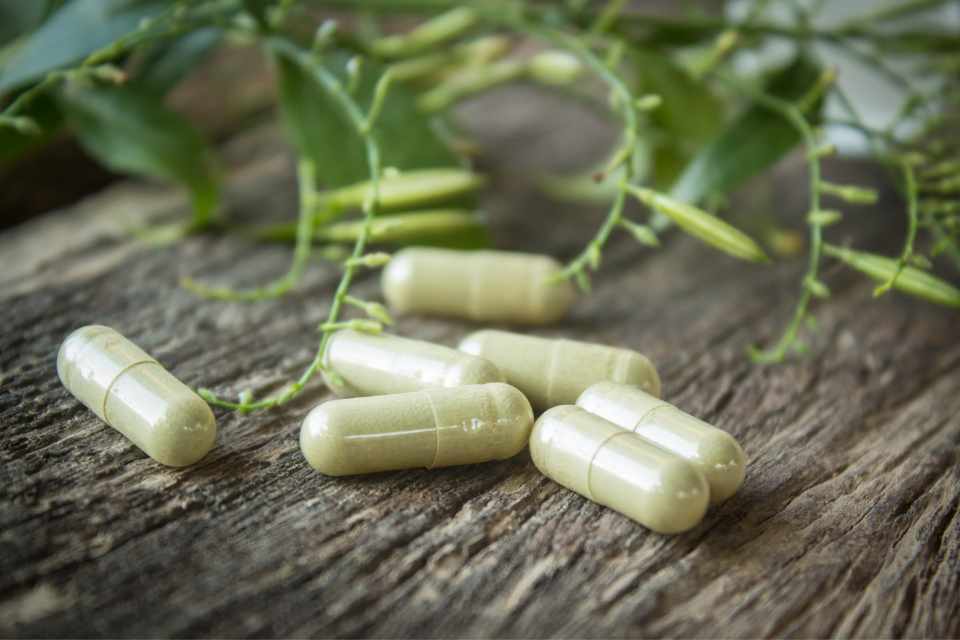Herbal medicine and homeopathy have similarities but they are not the same. They differ in both the remedy itself and also in how we choose the remedy. Let me explain…
Herbal medicine
Herbal remedies can be either the medicinal plant material itself or an extract produced from it. In some cases, the remedy might be a whole plant. This might include the leaves, stems and roots. More often a remedy is from a specific part of the plant such as the flowers, bark, leaves, berries, seeds or roots. For example, elderflowers, willow bark, peppermint leaves, goji berries, fennel seeds and dandelion roots are all herbal medicines.
So, how do we use these plants to make herbal medicine? We can sometimes extract the herbs with just water. This is how we make herbal tea, by infusion or decoction. Or, we can make a tincture using a mixture of alcohol and water. There are other herbal preparations but as a herbalist, the herbal infusions and tinctures are the extracts I use most often.
Different species of plants contain different plant compounds. These can be complex and often unique chemical compounds with potent pharmacological properties. So, individual herbs are carefully chosen for their medicinal effects on the body.
The herbal remedy
Herbalists produce a remedy for the individual, usually containing a mixture of several herbs. The combination of different herbs provides synergy. The action of the mixture is greater than the sum of the medicinal actions of the individual herbs.
The aim is not only to reduce symptoms but also to improve the health of the person. Aiding the body to heal itself. In fact, many herbal remedies have a tonic action on the tissues or the organs of the body. An ancient and traditional way of using herbs for improving health.
Herbalists use these remedies to improve the function of cells, tissues, organs. As well as improving whole body function. In other words, herbalists practice functional medicine which is becoming popular.
Despite their medicinal properties, some herbal remedies are mild and gentle and are eaten as foods. There are several herbs in this category. Such as oats, slippery elm, artichoke, onion, lemon, dandelion leaf, cranberries and pomegranate. Not to mention all the culinary herbs and spices, garlic, ginger, turmeric, thyme, rosemary, fenugreek, peppermint, parsley, mustard and horseradish. Though of course some of these are quite potent. For instance, you wouldn’t want to overdo the horseradish for example!
Use caution with some herbs
There are also several stronger acting herbs that require some caution. Some herbal remedies can have side effects with inappropriate use. And, because they have pharmacological actions similar in some cases to pharmaceuticals they can interact with drugs from your doctor
Medical herbalists train in the safe and effective use of herbal medicines. Especially when it is safe to use them alongside conventional medicines.
Homeopathy
Plants are also the source of homeopathic medicines, but so are certain minerals and other compounds. In fact, some of the same plants produce both herbal medicine and homeopathic. For example, chamomile and arnica are medicinal plants that are used in both.
However, one big difference between the herbal remedy vs homeopathy is the concentration of the medicine. Whilst herbal medicine has a measurable amount of active constituents. Homeopathic medicine preparation means the remedy itself contains little or nothing of the active constituents. Homeopathic medicine involves extracting the plant or other material, then diluting it. This process takes place several times using a specific and precise procedure to create the final remedy.
Then we use the homeopathic remedy in the form of drops, pills, tablets or lozenges.
Another major way that homeopathy differs from herbal medicine is the way we choose the remedy. Specifically, a homeopath chooses the remedy which most closely matches the symptoms. In fact, the remedy, if not for its extreme dilution, would produce the exact same symptoms that the original remedy is said to resolve.
Lack of side effects
Homeopathic remedies are usually very dilute, even inert. So, we regard this form of medicine as very safe and without side effects.
In fact, arnica is a good example of a remedy in use in both types of medicine. But this is in a very different form. In herbal medicine, arnica is a useful topical remedy that helps to speed the healing of bruises and reduces swellings. However, the herbal remedy must not be used internally or on broken skin. This is because there is the potential for side effects. On the other hand, the homeopathic remedy arnica is safely used internally. This is because homeopathic arnica is in a very dilute form.
Although homeopathic medicine and herbal medicine have similarities, they do differ, a lot. Especially in the strength of the remedy. Herbal medicine has a reputation as a safe and gentle form of medicine. But herbs are potent and need careful use as side effects can occur. It is probably best to consult a professional herbalist or homeopath to get the best out of both these types of alternative medicine.







0 Comments